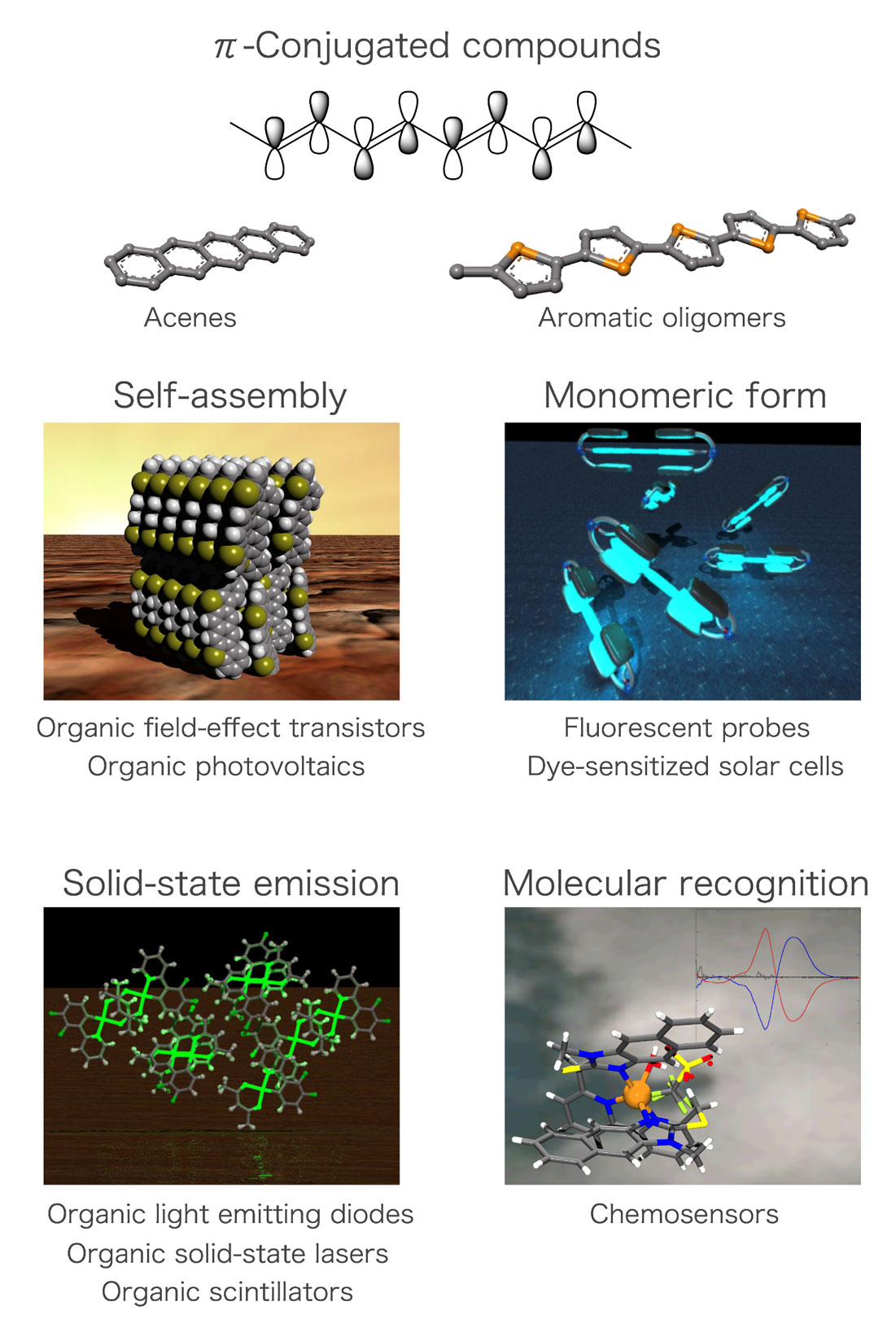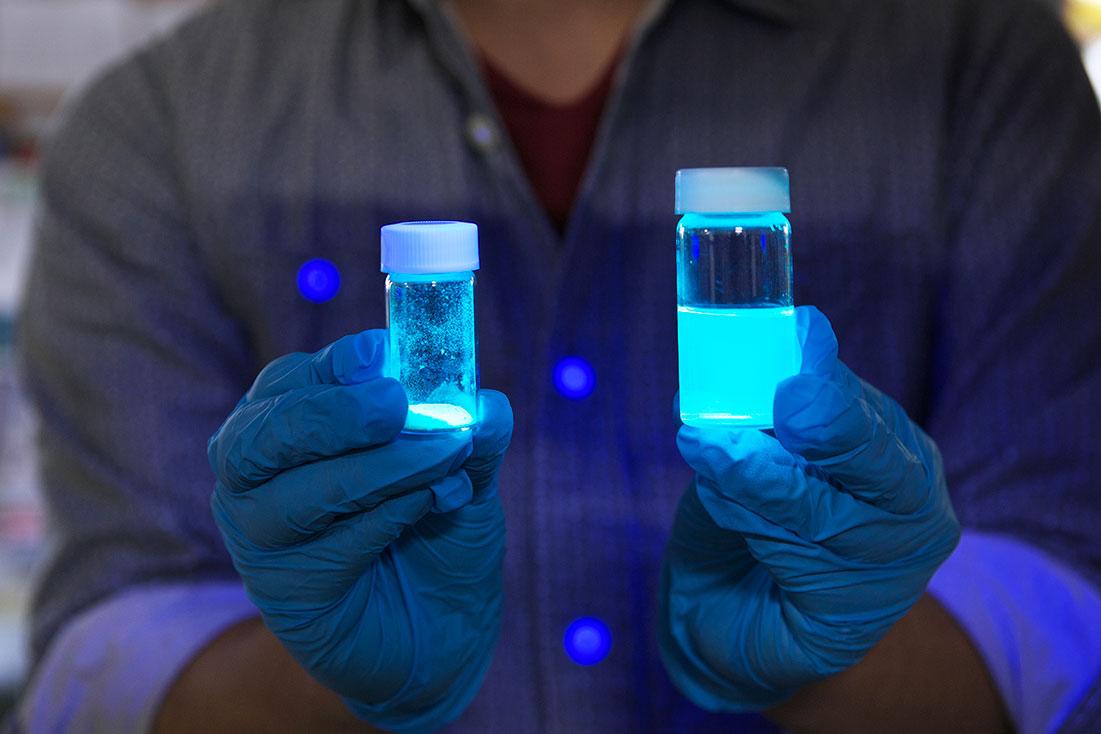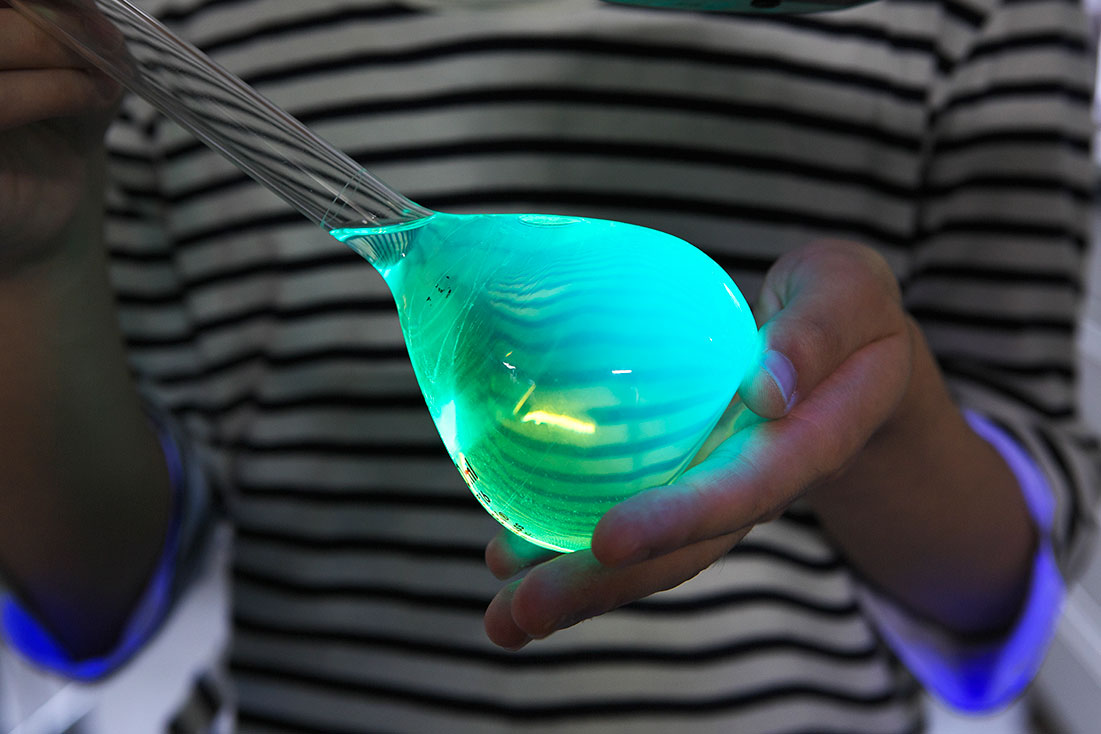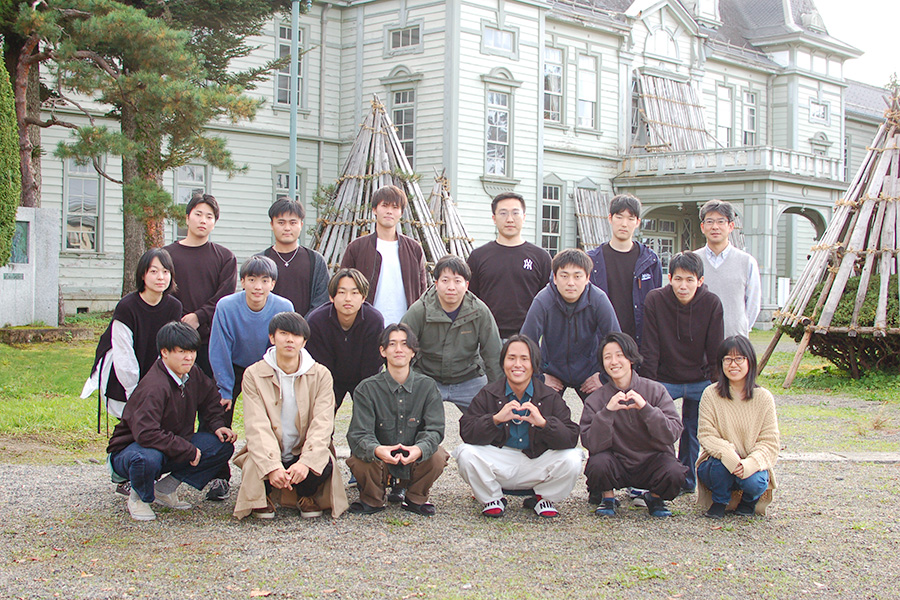Research


Home > Research > KATAGIRI laboratory
Research fields/Keywords:organic synthesis, physical organic chemistry, π-conjugated organic molecules, fluorescent dyes, organic semiconductor materials, chemical sensors
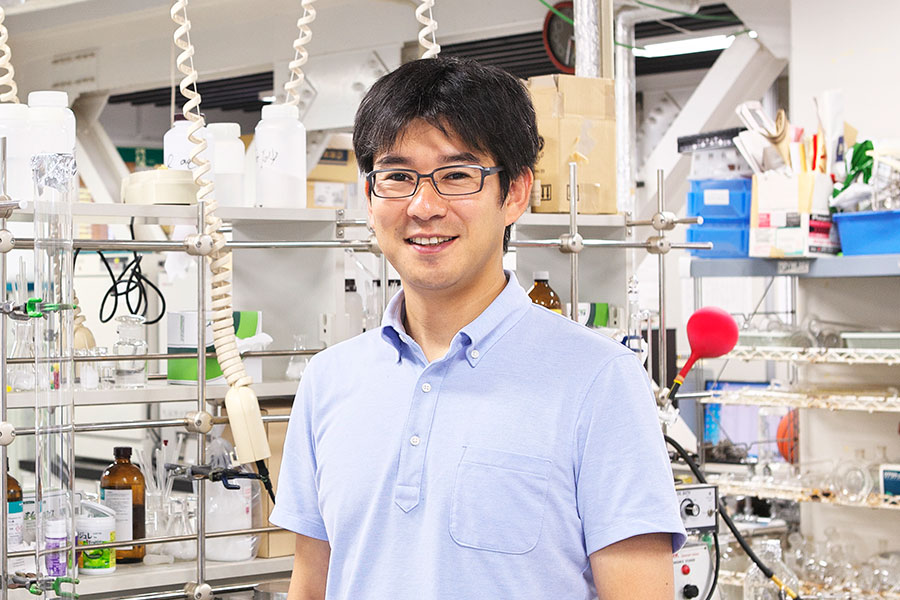 Professor Hiroshi KATAGIRI
Professor Hiroshi KATAGIRI
π-Conjugated molecules are a focus of growing interest in a wide range of fields, including as components in organic electronics and fluorescent probes. Molecular structures and how they are assembled are crucial to application performance. For example, higher-order self-assembly is needed to achieve optimal performance in organic semiconductors, since non-assembly unimolecular behavior is desired for high emission efficiency in fluorescent dyes (fluorochromes), which are used for bioimaging. The development of organic materials that can emit fluorescent light in the aggregate or solid state is also extremely important in organic electroluminescence and organic solid-state lasers. Longer-wavelength spectra obtained from extended π-conjugated or Push-Pull systems are also vastly advantageous when designing molecular probes for molecular recognition.
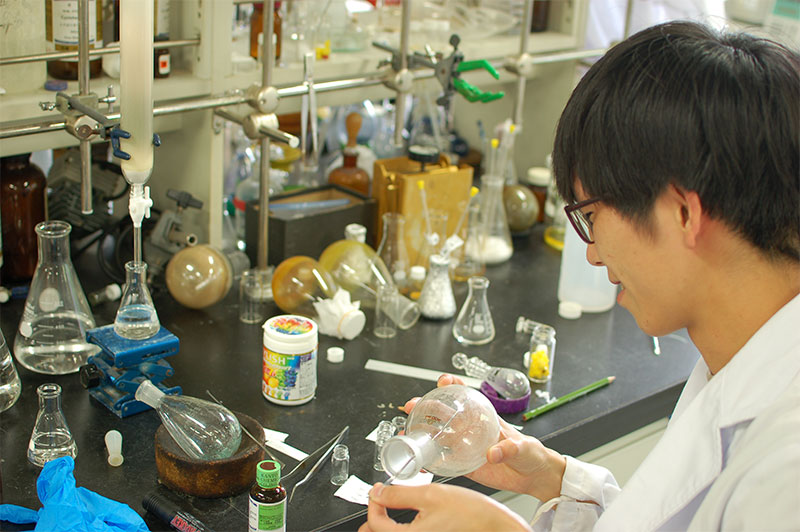
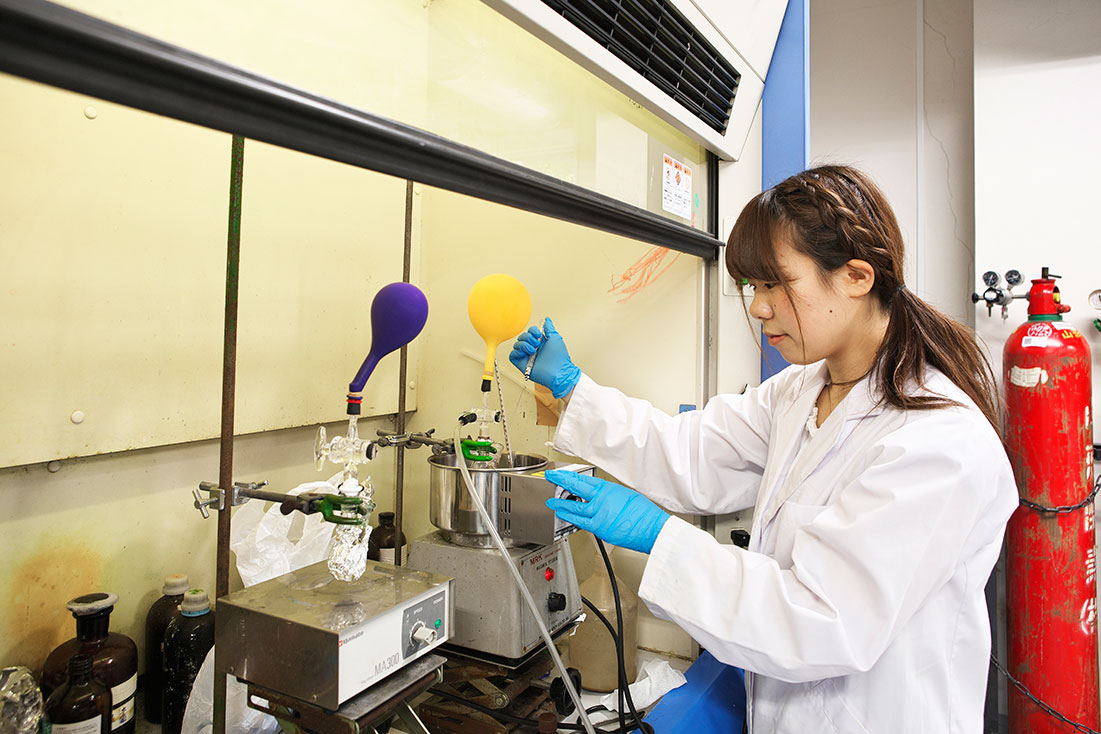
Using synthetic and physical organic chemistry techniques, we design and synthesize novel π-conjugated molecules using aromatic compounds as a fundamental framework. Further, by employing supramolecular chemistry to control molecular structures and fine-tune the unique characteristics of molecular assemblies, we are developing novel high-performance functional materials with the potential for application in the fields of organic electronics, fluorescent probes, and chemical sensors.
